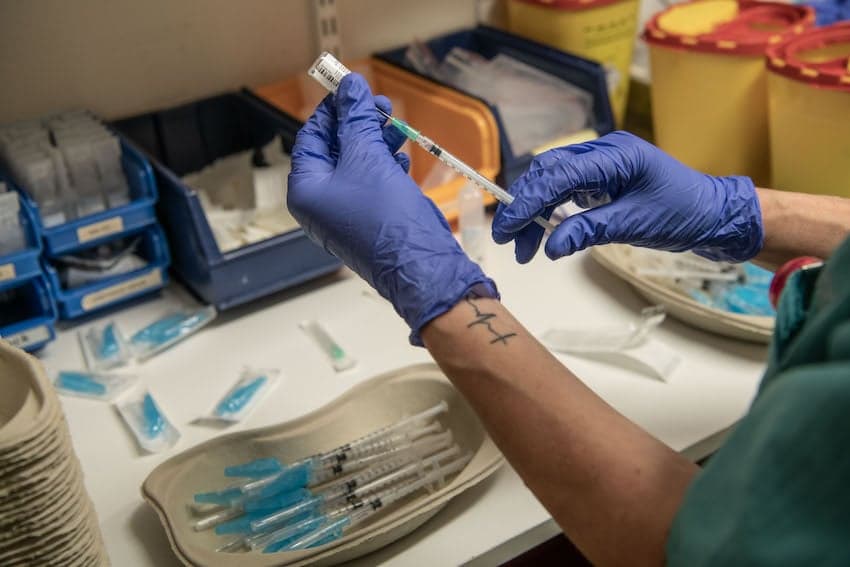Public Health Agency recommends two Covid doses next year for elderly

Sweden's Public Health Agency is recommending that those above the age of 80 should receive two doses of a Covid-19 vaccine a year, once in the spring and once in the autumn, as it shifts towards a longer-term strategy for the virus.
In a new recommendation, the agency said that those living in elderly care centres, and those above the age of 80 should from March 1st receive two vaccinations a year, with a six month gap between doses.
"Elderly people develop a somewhat worse immune defence after vaccination and immunity wanes faster than among young and healthy people," the agency said. "That means that elderly people have a greater need of booster doses than younger ones. The Swedish Public Health Agency considers, based on the current knowledge, that it will be important even going into the future to have booster doses for the elderly and people in risk groups."
READ ALSO:
- Sweden's new Covid wave could rival last year's: Public Health Agency
- Sweden has no plans to introduce Covid-19 restrictions this winter
- When should I get my next dose of Covid-19 vaccine in Sweden?
People between the ages of 65 and 79 years old and young people with risk factors, such as obesity, diabetes, poor kidney function or high blood pressure, are recommended to take one additional dose per year.
The new vaccination recommendation, which will start to apply from March 1st next year, is only for 2023, Johanna Rubin, the investigator in the agency’s vaccination programme unit, explained.
She said too much was still unclear about how long protection from vaccination lasted to institute a permanent programme.
"This recommendation applies to 2023. There is not really an abundance of data on how long protection lasts after a booster dose, of course, but this is what we can say for now," she told the TT newswire.
It was likely, however, that elderly people would end up being given an annual dose to protect them from any new variants, as has long been the case with influenza.
Comments
See Also
In a new recommendation, the agency said that those living in elderly care centres, and those above the age of 80 should from March 1st receive two vaccinations a year, with a six month gap between doses.
"Elderly people develop a somewhat worse immune defence after vaccination and immunity wanes faster than among young and healthy people," the agency said. "That means that elderly people have a greater need of booster doses than younger ones. The Swedish Public Health Agency considers, based on the current knowledge, that it will be important even going into the future to have booster doses for the elderly and people in risk groups."
READ ALSO:
- Sweden's new Covid wave could rival last year's: Public Health Agency
- Sweden has no plans to introduce Covid-19 restrictions this winter
- When should I get my next dose of Covid-19 vaccine in Sweden?
People between the ages of 65 and 79 years old and young people with risk factors, such as obesity, diabetes, poor kidney function or high blood pressure, are recommended to take one additional dose per year.
The new vaccination recommendation, which will start to apply from March 1st next year, is only for 2023, Johanna Rubin, the investigator in the agency’s vaccination programme unit, explained.
She said too much was still unclear about how long protection from vaccination lasted to institute a permanent programme.
"This recommendation applies to 2023. There is not really an abundance of data on how long protection lasts after a booster dose, of course, but this is what we can say for now," she told the TT newswire.
It was likely, however, that elderly people would end up being given an annual dose to protect them from any new variants, as has long been the case with influenza.
Join the conversation in our comments section below. Share your own views and experience and if you have a question or suggestion for our journalists then email us at [email protected].
Please keep comments civil, constructive and on topic – and make sure to read our terms of use before getting involved.
Please log in here to leave a comment.